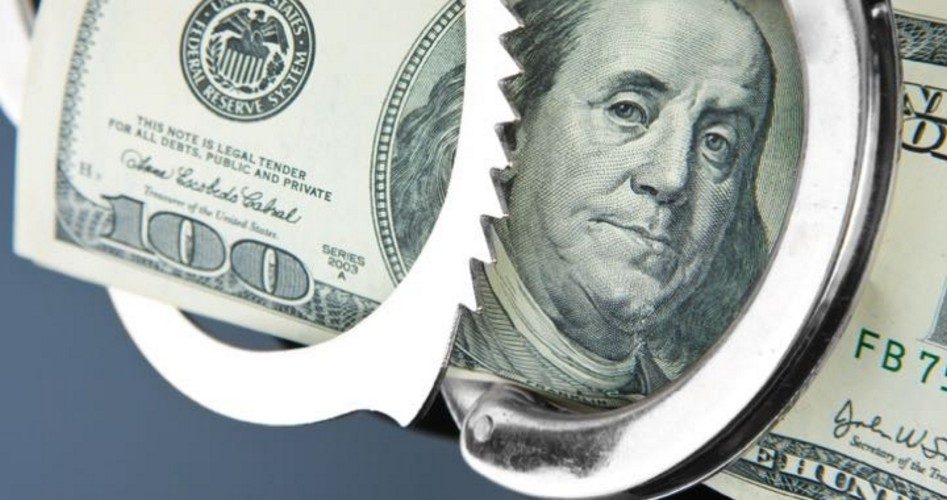
The U.S. Treasury Department slapped sanctions on another eight Venezuelan government officials on Wednesday, bringing the total now to nearly 30. This is a partial fulfillment of a promise by the Trump administration to sanction everyone involved in the establishment of the fraudulent Venezuelan “constituent assembly” sworn in on Tuesday.
Included among the eight is Adan Chavez, the late Marxist President Hugo Chavez’ elder brother, who now serves in the new assembly as secretary of its presidential commission.
In making the announcement, Treasury Secretary Steven Mnuchin said, “President Maduro swore in this illegitimate Constituent Assembly to further entrench his dictatorship. This regime’s disregard for the will of the Venezuelan people is unacceptable, and the United States will stand with them in opposition to tyranny.”
Maduro just laughed off the new sanctions, telling Mnuchin to “sanction anybody you want,” that it won’t matter. Maduro’s people are calling U.S. sanctions a “badge of honor,” and Maduro himself is granting the targets raises and promotions following the imposition of them.
In fact, one of those newly sanctioned, Francisco Ameliach, said U.S. actions wouldn’t affect his “Bolivarian, anti-imperialist and deeply Chavista principles.”
The idea behind sanctions is punishment through freezing the U.S.-stored assets of Venezuelan officials and limiting travel and the ability to do business with Americans. Ultimately, goes the theory, sanctions, if they are severe enough, would cause discontent and divisions in Maduro’s administration, weakening it and setting the stage for a rebellion of some type.
Some experts are expressing severe doubts that the sanctions are working and that, instead, they are hardening the attitudes of those being sanctioned. Much like Londoners when Hitler stepped up the bombing of their city in hopes it would soften them to accept terms of surrender, it further steeled them against the tyrant’s threat.
Such a view was expressed by Michael Shifter, president of the Washington-based think-tank Inter-American Dialogue:
The theory is that these sanctions will intimidate senior officials in the government, will help create divisions and will help nudge [Maduro’s government] towards some kind of transitional arrangement to resolve the crisis.
But there is no sign they are succeeding in the way that the U.S. had hoped.
Senator Marco Rubio appears to be in the pro-sanctions camp: “I support the president sanctioning these corrupt Maduro regime officials.” In fact, according to Rubio, they ought to be stepped up, including economic sanctions on the country’s primary source of revenue, its state-owned oil company: “The time has now come for the president to act on his promise to impose significant economic sanctions on the illegitimate Maduro dictatorship.”
At present Venezuela supplies about one-third of all U.S. oil imports, feeding some 20 oil refineries on the Gulf Coast. Those refineries belong to nine companies, including Chevron, Valero, Citgo, and Phillips 66, which have written the president about the risks and costs they and American drivers will run if that flow of crude is hampered or shut off. The letter claims that sanctions “could significantly impact fuel costs for U.S. consumers” with the CEO of the group representing them adding, “We want to make sure that we don’t have the unintended consequences of doing more harm to U.S. refineries than the Maduro regime.”
This likely overstates the case, both for the United States and for Maduro. Estimates are that a complete shutoff of Venezuelan oil would cause the worldwide price of crude to rise by just $3.50 a barrel, or just a few cents per gallon of gasoline. Those refineries would very quickly replace Venezuelan heavy crude with increased imports from Canada, Mexico, and Colombia.
And Maduro would likely find other customers to ship his crude to, including Cuba and China, which have long histories of supporting Marxist adventures in South America.
Instead of ramping up sanctions, simple economics should be allowed to do the job of replacing Maduro. With his oil company PDVSA operating at about 30 percent of capacity and consequently generating revenues at a fraction of what they were just a couple of years ago, his government and his oil company are increasingly likely to default on large payments coming due before the end of the year. Maduro’s total outstanding government debt is estimated to be about $150 billion, and $5 billion of it, including principal and interest, are due and payable on or before December 31. With less than $10 billion in reserves — most of it in gold that isn’t easily converted into bolivars or dollars without collapsing the gold market — Maduro won’t come close to making those payments.
His defaults will trigger foreclosure and seizure of major parts of his company’s operations, effectively moving control of it to outside interests and shutting off his primary source of revenue.
These defaults would serve the same purposes as sanctions without the unconstitutional interference in Venezuela’s internal affairs, offensive as they are to so many. It’s less than six months to the end of the year and to the likely end of Maduro’s madness in his increasingly unhappy country. In this case, patience would indeed prove to be a virtue.
An Ivy League graduate and former investment advisor, Bob is a regular contributor to The New American magazine and blogs frequently at LightFromTheRight.com, primarily on economics and politics. He can be reached at [email protected].



